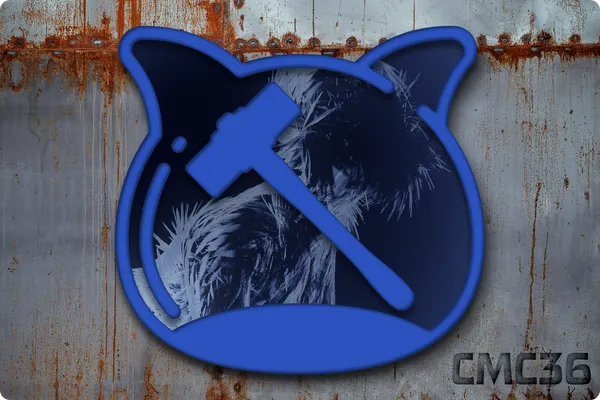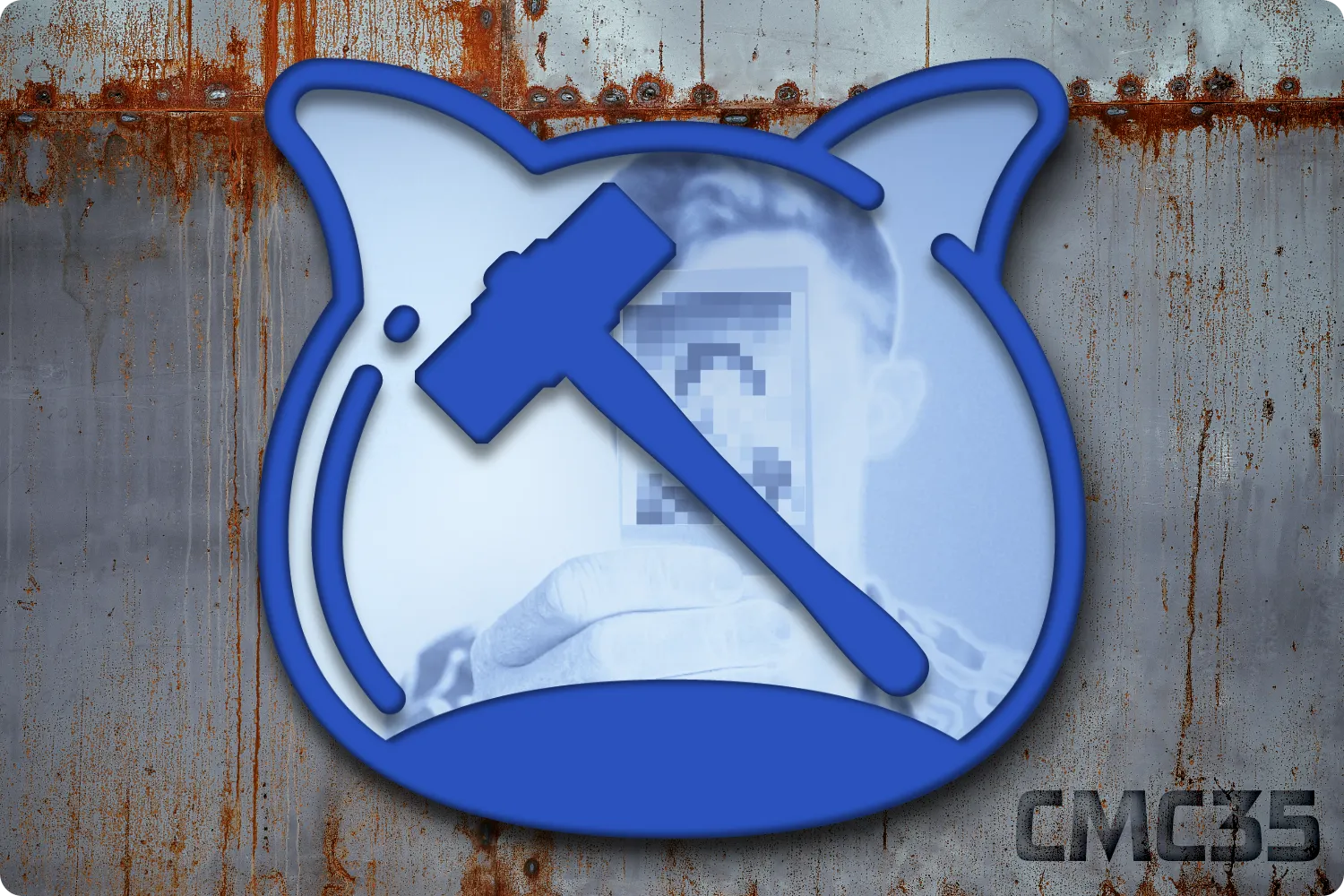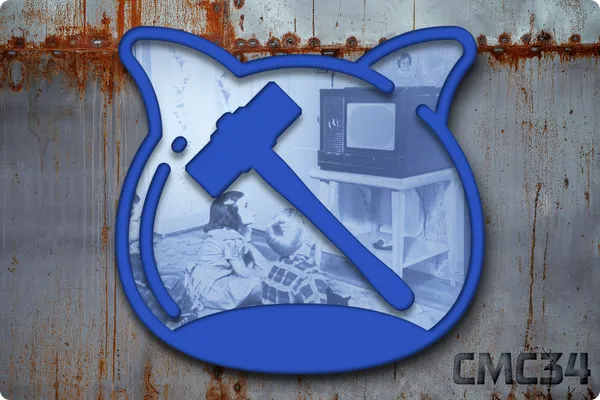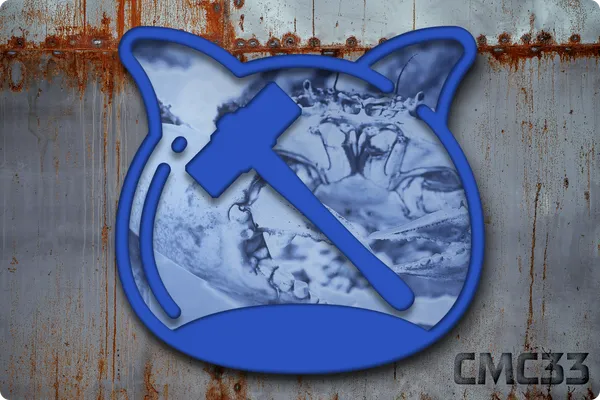
⚒️ The Defenders
The final Cavendish... for now
by Joel Glover

A fun place for people who love the web.

“We need new papers.”
His English was marked by an accent she didn’t recognise. This was unusual. Only a handful of pockets of resistance remained to the flattening influences of Nollywood, Bollywood, and new-colonial Received Pronunciation.
It sang.
She sipped her mint tea—plenty sweet—a taste of her people, thinking about the streets of her long-ago left-behind hometown of Istanbul, the Adhan ringing out between the sounds of traffic and commerce.
“For how many?”
One woman or an entire colony, Ayşe would help if the reason matched the risk.
“A crew of five and the boat.”
“You don't need new papers, you need old papers—if it is a boat. Scraps and tatters stitched together to form a whole. But that is actually easier for people than papers. Tell me about them.”
“My papers need to be Welsh or Argentinian. Can’t hide the accent. Other than that, we have a Greek. Oh, and someone with a non-contagious sleeping sickness.”
Greek made it hard. Not because of the old imperial rivalries, built in bronze and bone and carried into the carcine age. The old country was married to paperwork in a way that precluded divorce, and paperwork with a capital P.A.P.E. and R. You couldn’t hack wood pulp. This was not why the Greeks never digitised, but it made a handy excuse.
“Definitely non-contagious?”
In the old world, zootropic illnesses were the public health fear. Out in the ink, public health authorities were more concerned with novel fungal infections, biological spillover from the hydroponics bays, and xenotropic viruses.
There were ghost stories.
“Weaponised single use.”
The horror stories about weaponised viral bullets were even more popular than the ones about abandoned space stations filled with goo that could have been people. But the way the man said it—with no sign of emotion—chilled any thought she might have entertained to deny their credibility.
“Most important questions next then: why me, and why you?”
“Contract gone bad—Big Blue fingerprints all over it. I heard the Pigman was the person to speak to.”
Word of mouth.
The marketing tool money can’t buy.
“I’ll see what I can do,” she agreed.
“Oh, they’ve been proper naughty boys and girls, haven’t they?”
Ayşe knew for a fact that before the Ship Breaker’s unfortunate accident, she had not presented herself as an East London gangster. She was from Lagos, and not the Nigerian one, a once tiny Portuguese woman swollen to above-average proportions by cybernetic repairs run amok. The voice-box in her shattered throat was salvage, like much of the metal studding her, and it possessed, it seemed, a mind of its own.
“Haven’t we all been, from time to time?” Ayşe replied to her colleague about activities precluded by regulation and the corporations' preference for ownership of every cubic centimetre of the dark oceans beyond Earth.
“True, true, I’m a right rapscallion when I put my mind to it,” the Ship Breaker agreed amiably.
Ayşe had heard stories of piracy, larceny, and a crime called barratry, which she had needed to look up in a nautical dictionary to contextualise.
The boat they were walking through was being torn into indistinguishable components by the Breaker’s highly contraindicated automated facility, the synthetic intelligences and monitoring software caustically and impersonally lobotomised to scour away any claims of ownership which might be made against future buyers of Ship Breaker’s wares. Sections of the hull plating were scarred, diamond-tipped mining drill heads having chewed an impromptu ingress into the torso of the vessel. Gaudy blood spatters, yet to be cleaned from the ship’s almost organic matter, told a tale of improperly applied vacuum seals and, subsequently, nasty decompression.
Ship Breaker watched Ayşe looking and sadly shook metallic dreadlocks.
“Wasteful,” she clucked. “Would never have happened in my day.”
Ayşe thought about a story told in hushed whispers by men of a buccaneering bent of an atomic weapon stuffed into a recalcitrant prey craft by an angry Portuguese.
“Quite,” she murmured.
“Five days,” the Ship Breaker suggested.
“Three?”
“Four.”
“Done.”
Ayşe had known it would be four before she docked. Sometimes you have to show your face though.
The girls wandered the halls of Minikoi wrapped in the disguise of their appearance. The station accommodated all sorts. In fact, ‘it takes all sorts’ was a sort of slogan of the residents, muttered like the refrain of an old satire almost regardless of the situation which prompted speech. They browsed ship components, noodle bars, tea joints, and mining rig repair shops with the ceaseless vigour young shoppers were known for. The knives strapped to their inner thighs were ceramic, to avoid metal detection, and their purses held unpleasant surprises for any would-be mugger or kidnapper.
The veneer of civilisation rubbed thin, at times, on far-flung stations, like the cloth covering the knees of a very penitent man indeed.
Rosalia’s penchant for abrupt displays of violence precluded any capacity for penitence on her part. Her sisters did their best to make up for it, when they remembered. Which was rarely.
“That guy,” Nadezhda, little Didi, flicked a thumb back in the direction of the stall they had just passed, “mentioned someone who could be one of our Tigers.”
They used their own cant shorthand when in potentially hostile territory. Didi insisted on it. Tiger was Target.
“More importantly, I managed to get a line on some heat inductor panels and a bucket of nearly new quantum chips,” Keke replied, mind firmly on her tasks of keeping their ship moving from place to place where she could create explosions.
Her smaller sister gave her a flat look.
“Eyes on the Tiger,” she reminded the watchmaker.
“Rising up, la la la laaaaaaah,” mumbled the third of the group around a mouthful of sticky rice.
“Shut up, Rosie,” her sisters said in pained unison.
“Back to dads?” Keke asked, knowing full well that Didi would want to be on scanners ASAP.
“Get some char first,” Rosie objected.
She made a good point.
Overwatch was made much more bearable by the presence of real tea to drink.
The air was clean and clear, the gas mix perfect. The only refinement made to the air circulation system was a tweak to the kitchenette’s extraction system at Jean-Marie’s demand. What was the point, he asked, of slaving over a hot stove if the aroma of his craft was not allowed to serve as an appetite-enhancing aperitif.
This demand created an argument with Ajax, whose stated objection was that induction stoves do not actually become hot, and whose tacit objective was to perturb Jean-Marie’s equilibrium at every opportunity.
The air was clean and clear, but it shouldn’t have been. Since Rhodri’s meeting with the Pigman the whole crew had been trapped within the shell of the ship, waiting. Minutes stretch to days quite quickly when you have done all the mind numbing repair and restoration tasks during your transit, and so all you have left is to sit, becalmed, and try and avoid consuming any media which might remind you of your peril.
Jean-Marie was making bread. This was a challenging task when your specification is the perfection of a particular boulanger in a Toulousain banlieu remembered from childhood, and your materials do not include wheat.
The first three attempts were declared disasters.
Rhodri surreptitiously claimed one of the rejected final batch and used it to mop up his dhal. Despite the chef's voluble denouncements, he found it more than adequate.
“There’s something amiss,” Ada announced.
Ada had several levels of alarm, ranging from ‘that’s interesting’ all the way to ‘fuck a duck.’ Rhodri catalogued them in the preamble to their courtship. ‘Something Amiss’ was two notches from the worst Ada would ever commit to, and had been said on several occasions which immediately preceded an exchange of explosively tipped weaponry in the void of space. Her pronouncement therefore provoked an immediate cessation of culinary activity.
“Would you care to share any further details?”
Jean-Marie shifted from frustrated baker to Weapons Officer with a serpentine suddenness.
“A hole in our scanner records. Subtle, very subtle, but shifting. I only found it because...”
She didn’t need to finish. She found it because she was bored and paranoia was the weathervane’s stock in trade.
“Confirmed?”
“Checked and confirmed back and front with predictive algorithm,” Ada reported.
“Fuck a duck,” Ajax complained.
“Wake Lean-to up,” Jean-Marie instructed. “Rhodri, put fish in the water.”
Rhodri’s ‘fish’ swam through the space around them. The term was a hangover from the nautical conceptions of space-going vessels. However, he had read a book once about submarine warfare on Earth that seemed moderately familiar to his own existence. Where a wet-world navy used the term ‘fish’ to refer to torpedoes, the Special Purpose Expeditionary Companies evolved the concept to manage the complexities of four-dimensional violence waged with supercomputers most human brains were incapable of conceiving.
Some SPECs raised their reputations to inflate their contracts, swaggering around like bounty hunters or lawmen from New Quebecois movies. Others were subtle with an emboldened b, whispers of their actions heard only by the most attuned ears. Because of this, it was impossible for Rhodri to judge with any accuracy if he was the most inventive of the SPEC cadre watchmakers.
The proof, as his maam-gee used to say, was in the pudding.
Pods of torpedoes and ship-killers cruised silently in the wake of The Berganza, waiting for the scent of venting atmosphere or the tickle of a targeting laser. But around them, obfuscating their silvered reflection with an almost infinite array of fractal signals, were Rhodri’s proudest innovations. Shoals of drones and artefact shadows filled the space, some tumbling like jettisoned debris, others moving with artificially implied purpose. A school of harmless-looking specks formed a cloud along the Berganza’s flank, stitched together by a communication web built on top of repurposed alien technology. The whole affair was designed to confuse and confound, signals of shipwreck mingling with targeting algorithms to perplex any potential predator.
With a rapid series of keystrokes and more than a little regret, Rhodri handed control to Jean-Marie.
Her reputation as a weapons officer had been won between the hardest of places and the hottest of frying pans.
“Upir, upir, upir!”
The business of weapons and warfare on The Heartless She was conducted, primarily, in a polyglot mix of Russian, Ukrainian, Tartar, and Arabic. The choice of words was idiosyncratically Lev, and when Ovsei reviewed any after-action footage and data he smiled to hear his adoptive daughters barking commands at one another in his husband’s almost whimsically strange cant.
It was hard to smile when Didi blurted her warning that enemy weaponry was aimed at them.
The surface of the canteen table concealed an electromagnet which pinned cutlery and tableware to it in the event of evasive manoeuvres and other unpleasantness, preventing dinner from becoming shrapnel.
His cup of tea clamped itself firmly to the table, letting him know that the ship weathervane was at the controls of his vessel and was trying to shake things loose.
“Maneuveruvannya!”
He had taught her well. Ovsei might be the shipmaster, the pilot, but he trusted each of his adoptive daughters at the stick, even in dire straits.
“Khezir away!”
Rosalia’s voice joined her older, more cautious sister’s. Normally exultant when at the trigger, the unusual defensive posture had robbed her of her vigour. The ship shuddered as the khezir, decoy drones as ugly as the warthogs they were named for, calved and span away from their matron.
“Papa Lev, back bubble, urgent.”
“Da, da.”
The ship shook again, its trembling accompanied by the screech of internal alarms and the hiss of doors slamming pneumatically shut.
“Got them.”
Jean-Marie punched the air triumphantly. Rhodri had made for her a series of stone bullets, something from the dawn of warfare made in a machine shop with stellar precision. The rail gun spat them out along parabolic arcs, using gravity and predictions of evasive motion to strike home. Some were fired at other targets, creating ricochets whose apparent randomness covered the careful shrapnel net the gunner was crafting.
Arterial spurts of plasma and air gushed from the side wall of their pursuer’s carapace.
“Hit them again!”
Ajax was strapped into the nose of The Berganza, shielded from the uncaring embrace of space by little more than glass and struts of complex-carbon. His weapons would only come to bear in extremis. The whole situation made him as bloodthirsty as his Bronze Age namesakes.
Jean-Marie didn’t have to release any more munitions into the black; the shoals of Rhodri’s fang-toothed progeny were already closing on their prey. Beneath her control helmet, her eyes rolled, a lifetime of combat simulated and real allowing her to fracture her brain into multiple streams of thought, her limbs moving like a drummer’s as she brought another wave of mechanical hatred crashing down.
“Dvoyou mat!”
He was not a man much prone to cursing. Lips split from his fall, tongue bleeding from its impact with his shattered teeth, Lev indulge himself.
The bubble was out of reach now, and with it, the second set of point-defense weaponry. The bulkhead door in front of him was shut in a way that would require an EVA suit, a plasma torch, and twelve hours of careful work to undo. The only good news was that his outstretched left hand was on this side of the door with him. Six inches further forward and a separation from his second favourite set of fingers would have been an additional distraction to the pain in his face and the ship’s paroxysms.
“Check check.”
Didi was doing her job, even under gunfire. He was as proud of her as his bleeding mouth would allow.
“Ships, check.”
His husband was safe.
“Stores, check.”
His response was thick with spit and suffering, but understandable.
“Guns, check.”
Rosie sounded determined. That was good.
The pause went on.
“Keke, check check.”
Didi’s voice stretched and warped. Ekaterine did not answer.
“Position check, watchmaker.”
The question was addressed to the computers of The Heartless She, asked on an open channel in case her fathers or sister could reassure her.
The ship shook again.
The moment lasted long enough for Lev to know his daughter was lost to him before the final blow landed.
“Are we going to hunt for survivors?”
Rhodri knew the answer to the question, he knew he should never have asked it. He passed his cup of guilt to his crewmate, who refused to sup.
“Fuck them.”
He liked to think he was a good man.
He told himself he was, betimes, when he was laying along in his crib trying not to remember some of the contracts they had executed.
Executed was the operable word.
“Fuck them,” he agreed.
Fuck.
“I know a man,” the Pigman said, the video signal from Minikoi clear and firm despite the distance. The Cavendish Algorithms worked. It was one of the few things you had to give Big Blue. “And a place.”
One thing you did not have to give them was any confidence that they were not listening to any conversation you had using their buoys or relays. There was not enough manpower in the world to listen to every conversation in the panopticon’s reach. Still, processing power was cheap in the age of orbital data-centers and vacuum cooling.
“Did you have to?” she asked.
“Yes,” Jean-Marie told her, emphatically.
“Well then.”
The masked pair looked at each other, expressionless behind ceramic plates that lent at least a little deniability to their conversation.
“Best leave soon,” the Pigman concluded.
“Concur.”
And that was that.
“Trading ship Agra, prepare to dock.”
The cover was holding.
Rhodri was not sure how it was holding, but it was holding. They had stuffed the hold of The Berganza with minerals the Pigman had assured them would at least give their cover credibility, scrubbed the hull of any distinguishing features, and added layers of multifunctional plating to finalise the disguise. To the crew, it was a risible attempt, but it seemed to be passing muster for the third-tier security algorithms deployed in the frontier stations of Cavendish’s commercial reach.
Payment for the refit had come in three forms.
None of the requirements had been unexpected, and only the third had been onerous in any way.
But you want to get out from the baleful glare of Big Blue, you took what you could and fuck the rest.
Part one had been the traceable currency accounts linked to their former lives as hands-for-hire in the incessant internecine conflict between Cavendish subsidiaries, abantu, and the few corporate holdings large enough to be in space and small enough to avoid full integration into an Anglo-African keiretsu. Laundered, folded, and put away their savings were now half of what they were.
Half, but hidden, being better than whole, but sequestered.
Big Blue’s bankers, Interstellar Fiscal and their supine, wholly owned, Trading Regulator called ‘confiscated’ ‘sequestered’. Politeness goes a long way in piracy, Rhodri knew.
“Excuse me, please, ma’am,” he mumbled in a faux-new-confederate accent stolen straight from morning cartoons as he slipped through a security gate swinging closed. He had a pass. It might even work once or twice. But why risk it when a tip of the hat and a zero-g cowboy swagger would work just as well?
Part two was the package tucked in his elbow.
Mass media consumers might assume that a watchmaker’s job involved trafficking in decaying isotopes and chemicals that violently objected to enforced proximity to one another. Rhodri was not against such tools, but he found that security services and interventionists often were, and equipped their workstations accordingly.
Happily for him, an operational space station was chock full of spicy rocks, combustible fluids, and gases easily tempted to toxicity.
The universal key slid down from his elbow to his palm, then from his palm into a socket in an environmental engineering control panel.
He sent three clicks of static across the Berganza’s internal communications array and received a two-click burst in response.
Ajax had completed his own mission, acquiring the last few items needed for Part three. The scavenger officer was the best at what he did.
Rhodri picked up his own pace, winding through Plimsoll Station with algorithmically derived unintentionality. His steps wend back and forward, taking him through main thoroughfares and cunning little cut-throughs, and back to the ship with seventeen minutes seven seconds to spare. Well within his safety margin.
Deep inside the command code sequence of the station, an error is perpetuated, replicated, feeding on the proliferation of denial and warning until safety measures melt under persistent pressure. Valves click open, semi-processors forming a concerto of agreeability to the demands of Rhodri’s pernicious programming.
The docking clamps release the reborn vessel, carrying the mercenaries to safety.
They are deep in the stellar gravity well before the explosion tears through their victim. Gusts of hydrogen burn in space, rocket fuel melting the steel and carbon beams of turrets and projections. Shrapnel spears out, propelled along burning rails by escaping gases.
One skewers the observation platform lurking in the station’s orbit, plucking one eye from the ever-staring face of the owners of the stars.
The void of space is not empty. Micro-asteroids, chipped from collisions, season the gaps between planets. As solar systems slide apart, the lightest gases form clouds too fine to perceive. The hungry voids made by collapsed stars suck hungrily at the volumes around them. Orphaned orbs hang lonely, hoping to trap others in gravitational dances.
The Pigman had provided the coordinates, distances measured in light-years between sufficient points in the firmament that an anchor point could be found. Drifting, yet another speck in the vastness, they were undetectable and unnoticeable by casual observers, becalmed by engines quieted to an almost imperceptible hum.
It was fortunate that they were well-suited as a crew.
A week in the doldrums had set wet-sea sailors in wind-powered ships to mutiny and cannibalism.
When you’ve just obliterated a state-of-the-art privateer and can infer a ransom on your heads payable in any port, quiet is the symphony which accompanies wary watchfulness.
The discordant hail from an unseen vessel, therefore, came as a rude shock.
“Berganza heave to and prepare for boarding.”
The voice dripped uisce and stout.
Ada was quick to respond, masking any worry with an almost robotic calm.
“Unknown vessel, we are the trading junk Agra, out of Third Limehouse.”
Rhodri knew his wife would be pummeling the sensor array to detect the speaker, and that his crew would be racing to action stations. As luck would have it, he was in the torpedo bay, so he had no need to rush anywhere.
His EVA helmet was on his bunk.
If they suffered a hull breach, he wouldn’t live to hear his wife’s complaints.
“Negative Berganza, the Agra is a lie.”
There followed a pause of milliseconds that lasted lifetimes.
“Fortunately,” the voice said with a humor that could cover any intent short of cannibalism, “we know the Ship Breaker’s hand, and a mutual friend sent us to rendezvous with you here. She said sometimes you have to show your face.”
The password had been conveyed in encrypted chunks and single-use pads.
Ada let out a steam kettle hiss.
“We just wanted to hit you up a bit! My engineer has new toys.”
The woman laughed, but not cruelly.
Rhodri thought for a moment about what he could do with technology that even his wife’s paranoia couldn’t evade.
“I hope you’re planning on sharing, unknown vessel.”
He put his demand into the clear.
“What else are friends for?”
The ship revealed itself from within the electronic cloud that shrouded it from view.
“On behalf of the Babd, welcome to the Freedom Caucus.”
They were committed, now.


